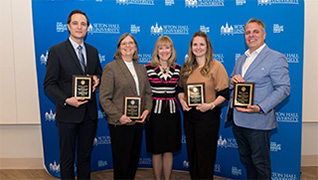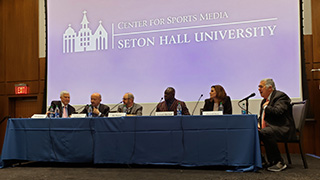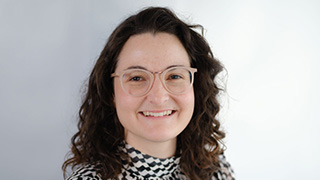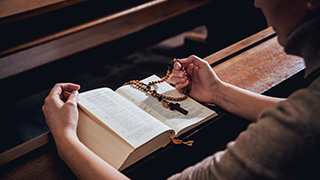Difficult Dialogues
Wednesday, May 10, 2023
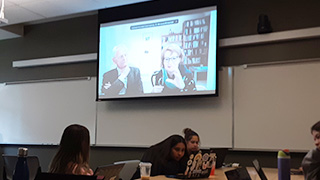
Guest speakers Ulrich Gantz and Sandra Wachtel.
On Thursday the Perils and Possibilities of Diversity Initiative in Education (PPDIE), a partnership between the Center for the Study of Genocide and Human Rights (CGHR) at Rutgers, and the Educational Studies Department at Seton Hall, co-sponsored an event on Difficult Dialogues. Students and guests from Rutgers and Seton Hall joined the session in classrooms (which joined the event as a group) and individually. In the classroom setting at Seton Hall, elementary and secondary education students were joined by others including the social studies chairperson for the East Orange Public Schools. They used their computers to ask questions in the chat while watching and listening on the large in-class screen as a group.
The session involved a conversation between Ulrich Gantz and Sandra Wachtel in Germany. The session was facilitated by Daniel Fernandez joining the event in Barcelona. Daniel has been a frequent contributor to PPDIE events. He has been a visiting scholar at Rutgers and has prepared and taught several classes in the Educational Studies Department at Seton Hall. An artist and activist, he uses media and film to promote ways in which to use the arts to promote peace. His documentaries are well-known internationally.
Ulrich and Sandra are children impacted by the horrors of the Holocaust in very different ways. Growing up, both were somewhat sheltered from the realities of their relatives, learning about it as they were growing up and well into adulthood. In the conversation on Thursday, one shared how the family became aware that their father was a Nazi official involved in the death of thousands after his death. The other told of how the imprisonment and murder of family members in concentration camps became known. The speakers shared the difficulty in learning such information and processing it. They described their work with groups seeking to address restorative justice and to find ways to overcome the deeply personal struggles they experienced. Both described how difficult the dialogue was and remains. They shared the framework in which such discussions took place, and how the process facilitated their ability to talk about their experiences.
They answered many of the questions that were submitted by the widespread audience. In one recollection an analogy was made to a train. People got onto the train without fully understanding where it was headed. As that train moved faster it became difficult to get off. The speakers shared anecdotes of those who tried and offered their views on how individuals can respond to injustice.
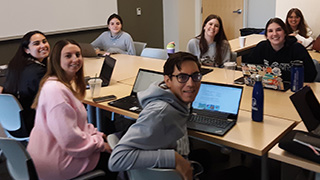
Students from Seton Hall engaging in critical dialogue after debriefing with students from Rutgers.
Both the Rutgers and Seton Hall groups de-briefed separately. The conversation in the Seton Hall classroom was focused on teachers' and schools' roles in providing settings for difficult conversations. Elementary and secondary candidates shared their understanding of ways in which historic and current injustice can be examined in developmentally appropriate ways. The Chair from East Orange, alumna Shea Richardson, provided examples of very young children dealing with 'hard history'. The discussion went beyond class time and included consideration of resources and opportunities to help the young grow in knowledge, understanding, and empathy.
Categories: College of Human Development Culture and Media

